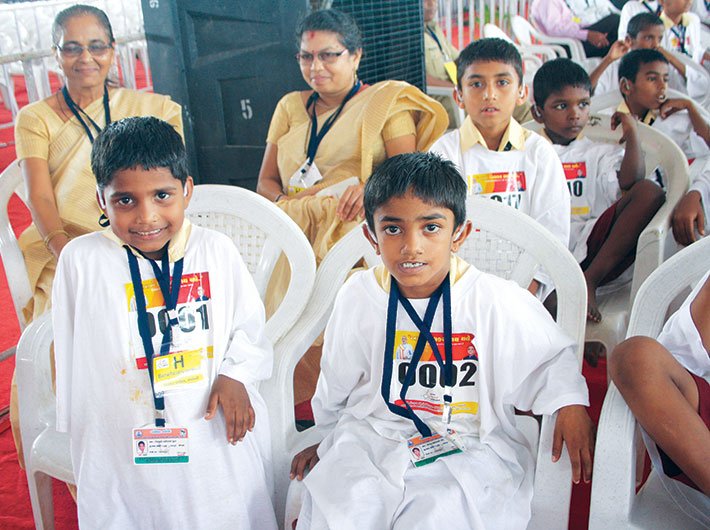Ravi Arora from Gujarat’s Navsari district, organised camps for the differently abled, making a showcase for the Accessible India campaign
For a split second, six-year-old deaf boys Vivek and Ritesh looked perplexed, and then they grinned as they were able to hear for the first time after a tiny cochlear implant was switched on.
These two boys from south Gujarat were among the 10,217 specially abled people who received sensor sticks, walking sticks, wheelchairs, tricycles, leprosy kits, cerebral palsy kits and artificial limbs – at the Divyang mega camp organised under Accessible India campaign – from Narendra Modi on September 17, the prime minister’s birthday.
The event at Navsari was powered by collector Ravi Arora, a partially blind IAS officer. Arora has helped organising several facilities and camps for differently abled during his postings in various districts of Gujarat.
“My work is inspired by the PM’s Accessible India campaign, so all credit goes to him,” said Arora while referring to the nationwide campaign to achieve universal accessibility for people with disabilities.
“It’s a subject of my personal interest. I am partially blind and have never seen how a blackboard looks like. My wife is suffering from polio and works as joint commissioner, income tax, in Navsari. The inspiration thus comes from home.”
In 2001, Arora cleared the civil services examination with an all-India rank of 325 – in general category. However, the UPSC rejected his candidature saying his vision was sub-standard. Arora went to court, forcing UPSC to accommodate him in the disabled category in 2005.
“The Accessible India campaign gave wings to our dream. When I was young, I felt the need for a smooth accessibility for differently abled people at public places and the need for the redressal of the problems and prejudices they undergo at various stages,” he said.
When he was posted in Valsad, Arora conceived the idea of developing an accessible seafront park for differently abled at Tithal beach. Work is now on to equip seafront with ramps and railings from the parking area to the seashore, giving a smooth passage to those on wheelchairs. “Tithal seafront, once functional, will break all prejudices,” said Arora.
At Navsari, Arora conducted a mega camp – Aao Milkar Saath Chalein – in two phases during July and August under the aegis of Artificial Limbs Manufacturing Corporation of India (ALIMCO) and Assistance to Disabled Persons for Purchase/Fitting of Aids and Appliances (ADIP) scheme.
“When we started the assessment for Navsari, people from neighbouring districts also showed interest. Approximately 26,000 people were registered from Navsari, Valsad, Vapi, Amreli, Tapi and Surendranagar region. Out of these, 11,300 were found to be eligible to receive kits,” said the officer.
Special stalls were put up for the disabled at the camp to give them on-spot certificates to avail various government services and benefits. “Some people without hands or fingers were not given Aadhaar numbers because of unavailability of their thumb impression. We provided them Aadhaar using an alternative way. Similarly, many certificates pertaining to their disabilities were signed on the spot,” he added.
The event also witnessed three world records – ‘the highest number of oil lamps lit simultaneously at a single location’, ‘the biggest wheelchair logo’, and ‘the most people fitted with hearing aid in eight hours’.
At the camp, the infectious smile on the faces of the beneficiaries said it all. And some rang the bells on their new tricycles to show their happiness.
swati@governancenow.com
(The article appears in the October 1-15, 2016 issue of Governance Now magazine)

